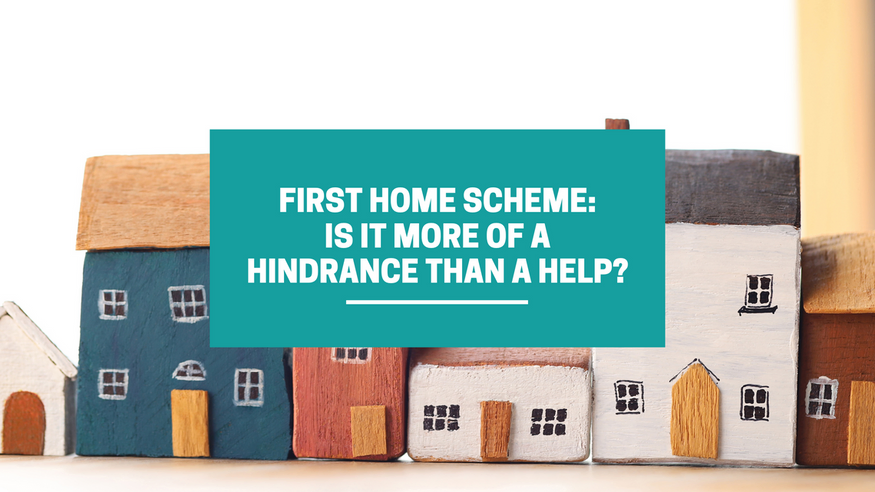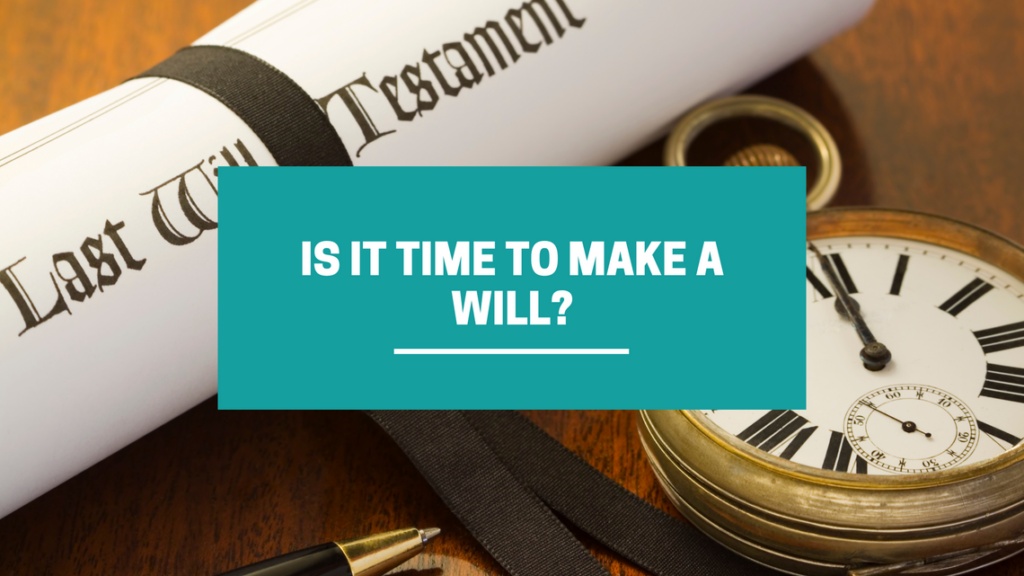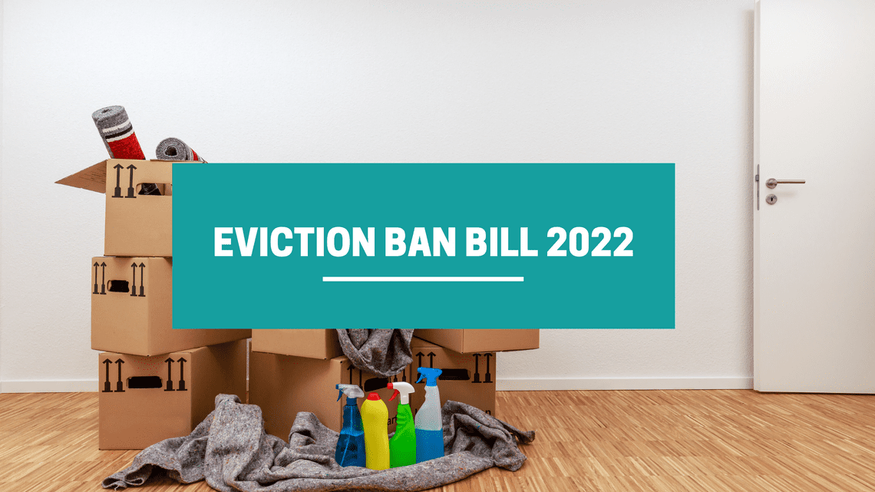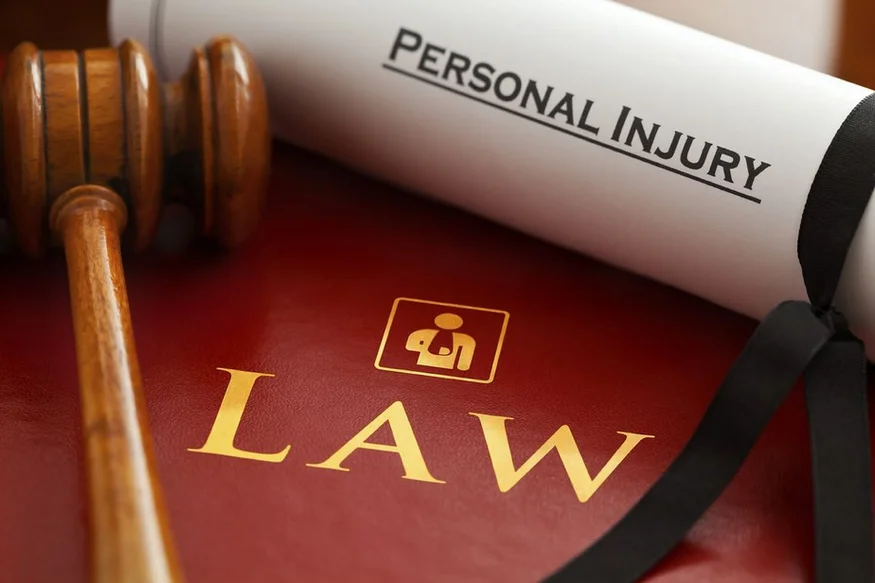Should we rent or buy? What to consider!

Lina Oksaite from our Property Team discusses renting vs buying in today’s market Statistics show that by 2018, home ownership in Ireland had increased up to 70.3% and people continue to buy homes for various reasons, be it for their own use or as an investment, especially in present times where renting a property is almost impossible. One may see that owning a home may be an investment and another may see renting as a way of saving their money and ensuring that their finances and any outgoings are stable and predictable, so they are able to plan and even save. Of course, many of us cannot imagine how paying money into landlords’ pockets, can be of any benefit at all. It has been noted that statistics show 14% rise in rents in 2022 alone, which is one of the highest increases in rental prices so far in Ireland according to Daft.ie, Irelands most popular property website. Daft.ie notes that at the end of 2016, there were less than 2,800 homes for sale in the Dublin market, however, in comparison, in December 2018, there are over 4,800 and it continues to increase making it harder for people to find homes to rent as selling property becomes more favorable. In 2022 there were only 345 homes to rent in Dublin and 1087 homes nationwide, which explains why renting is becoming unaffordable for many.It is important to note that Russia’s invasion of Ukraine, forced many residents to move and re-locate, some of whom have ended up in Ireland also increasing the demand for housing. Article 31 of the Council of Europe’s Revised European Social Charter sets out that the responsibility of the State is to: “promote access to housing of an adequate standard, to prevent and reduce homelessness with a view to its gradual elimination, and to make the price of housing accessible to those without adequate resources.” Over the past number of years, Ireland has been struggling to maintain affordable accommodation for renting purposes and even with the introduction of HAP, tenants face serious issues as their income may be “just little bit over” the threshold and they would fall outside the eligibility for this scheme. If you are one of the lucky ones and manage to secure a tenancy, one of the most obvious advantages, is that as a tenant, your responsibilities are limited such as to pay rent, keep the property in good condition as far as practicable and to pay some of utilities such as gas/electricity. Your Lease would usually contain all the covenants that you agree to by signing the Lease for a specific term. As a tenant in the property, you do not need to concern yourself with property taxes, management Fees or even repairs that may be due. You have flexibility in terms of your lifestyle, being able to move around without worrying about leaving your property behind or selling it. Renting property also provides the tenant with fixed expenditure therefore allowing the tenant to predict their expenditure and budget accordingly. However, if you are a considerably large family or wishing to settle it could be extremely difficult as a Lease would only last for a specific term and the Landlord is entitled to re-claim their property at any time for their own use or sale. This can be very unsettling as families usually find it difficult moving homes. Threshold, the tenants’ rights organization, which provides independent advice and advocacy to people experiencing housing problems, have reported that there is an ongoing increase in the number of people experiencing homelessness each month and even the lucky tenants are now forced to accept low-standard properties as supply drops but demand keeps increasing. In its report of 13 October 2022 called “Renting and Risk”, Threshold mentions the 2019 Focus Ireland Report, which found that 68% of homeless families in Dublin reported their last stable home as being in the private rented sector, with just over one-third of these becoming homeless because their rental property had been removed from the market (e.g., landlord selling). On the other hand, buying a house is a big step for anyone. The most obvious advantage is that it creates stability for families. You are your own boss, you can keep pets, make improvements you like, and no one is there to tell you otherwise. With rent prices being so high, you may see it more profitable to pay a mortgage which would be the same or less than rent payments. Especially nowadays where renting is so hard to find for a reasonable price. RTB statistics show that average rent payments in Dublin are around €2000 while average monthly mortgage instalments according to Bank of Ireland Calculators, could range between €1,300-€1,700 for a reasonably sized property, therefore meaning that paying a mortgage especially if you are living in Dublin, could be cheaper than renting a home. However, it’s not as easy as it sounds. Buying a home is a big financial expense. You are required to have a deposit of 10% and a wage of a certain level if you wish to get a mortgage as the size of the mortgage you are able to receive will always depend on your income. Any loans, or similar commitments will also reduce the size of the Loan you are able to receive. Apart from your mortgage, there is other expenditure you may incur such as paying taxes e.g. LPT, if it’s an apartment you will have to pay management fee, you will be responsible for repairs etc. Owning a home means you cannot just move without having a responsibility to look after it or being forced to dispose of the property, which also can be a great expenditure, especially where the market value falls, and you are not able to sell your property for the value you bought it. Despite the above, many people still choose to buy property due to the market being so good at this time and they are able to
The Help to Buy Scheme- Top 5 Questions Answered

Rachael Mc Cormack from our property team answers the the most commonly asked questions in respect of the help to buy scheme What is the scheme and why was it created? The Help to Buy Scheme was firstly set up by the Irish Government in 2017 to allow first time home buyers to get their foot onto the property ladder. It’s designed to help first time buyers raise their contractual deposit needed to either purchase or build a new home. The tax incentive works in a way of a tax refund of Income Tax and Deposit Interest Retention Tax over the last 4 years which can result in a refund of up to €30,000.00. This scheme has now been extended until 31 December 2024. Who is eligible? For a person to qualify for this tax incentive, they are required to be a first time buyer who is either buying or building a new home up to the value of €500,000.00. If you are buying with another person, they too must be considered as a first-time buyer. The initiative is only applicable to new built homes, it does not apply to second hand homes, buy to let properties or renovated properties. How to apply? When applying for the Help to Buy Scheme there is two stages; The Application Stage (Preliminary stage) A person must be tax compliant in order to apply for this tax incentive. A person would apply through their “my account” with revenue, they can apply as an individual or as part of a group if buying with another person. If revenue confirms that the applicant has been tax compliant, they are given an application number, a summary of the maximum amount they can receive and an access code. The Claim Stage A valid claim must be submitted before the applications expires, otherwise an application would have to be resubmitted. If an application was submitted between the dates of 1st January and 30th September, it would expire on the 31st December of the same year, if the application was submitted on the 1st October and 31st December it would expire on 31st March of the following year. Once the applicant’s contract for sale and loan offer has been signed it is then required to be uploaded to their claim application. Revenue then provides the applicant with a claim reference and access code which is required to be provided to the Developer and their Solicitor in order to obtain the tax refund which would represent the remaining contractual deposit. Can you use a Mortgage with the HTB? Yes, a person who is eligible for the scheme may use the assistance of finance with the Help to Buy Scheme. It is important to note that Revenue has a requirement in place to be complied before a person can make a successful claim under the initiative being that the person must take out a mortgage of at least 70% of the purchase price. Revenue will provide an application number and access code once your application has been accepted which will be needed to be provided to your lending institution. How is the Tax refund received? Once the application stage has been completed, the applicant is then sent for verification. This process involves the Developer if purchasing a new build or the applicants Solicitors if building a new home to verify the sale. Once the claim has been verified the tax refund is provided to either the Developer in circumstances of purchasing a new build property or the applicants solicitor in circumstances where the applicant is building their home. *Please note that the content of this blog does not amount to professional advice. Legal advice should be sought in respect of specific queries. This update is provided on the basis of information available as at February 2023. For further information, please contact Rachael McCormack/Lisa McKenna or any member of the McKenna & Co Property Team.
First Home Scheme [FHS]- Is it more of a hindrance than a help!

Jack Duhig from our Property Team outlines the rules of the FHS to include the process. The First Home Scheme was launched in July 2022 and is available to first time home owners purchasing a new build or “fresh start” applicants purchasing a new build who have been adjudged bankrupt or who are divorced/ separated with no interest in the family home. Not only does the purchaser have to qualify for the FHS, but the mortgage provider must be one that participates in the scheme and thirdly; the property itself must also qualify. The rules vary for what properties qualify by purchase price according to County Council areas and in is recommend that you have a look at the FHS eligibility calculator on the FHS website to see what properties qualify in your area. The FHS is different from the Help to Buy Scheme as the FHS is a shared-equity facility, whereby the State pays up to 30% of the purchase price of the property and takes a commensurate stake in the property. If a purchaser is also availing of the Help to Buy Scheme, the amount of equity that can be contributed by the FHS is reduced. There are no charges for availing of the FHS for the fist five years, and thereafter there is a percentage charge applied each year called a service charge which gradually increases to a 2.85% charge in year 30. If after 30 years you have not bought back the equity, and you got a €30,000 facility from the scheme, you will have to pay a service charge of €855 per annum. There are several scenarios which trigger the redemption of the equity, for example if the property is sold or if the home owner dies, where the equity share will have to be “bought back” in full. It is important to note that the FHS is entitled to a percentage share of the property’s value, so if they initially contributed €30,000 which was 10% of the property purchase price, and the value of the property subsequently doubled, the FHS is still entitled to 10% which is now €60,000, on an event which triggers redemption. The FHS recipient does not have to wait until a redemption event to buy back the equity in the property and can do so at any point, or they can pay it back in installments of at least 5% of the original amount received. Practically speaking for the FHS applicant, your solicitor will receive the FHS legal pack around the same time that they receive the legal pack from the mortgage provider and will be able to advise on both at the same meeting. Once all documents are submitted to the FHS by the solicitor, the FHS will disburse funds directly to the solicitor’s client account in the same manner which happens with loan funds from your mortgage provider. It is recommended by the FHS that you obtain independent financial advice as well as legal advice before availing of the scheme. The FHS has proved popular with over 800 applications so far and the initiative forms part of the Government’s “Housing for all” plan. *Please note that the content of this blog does not amount to professional advice. Legal advice should be sought in respect of specific queries. This update is provided on the basis of information available as at January 2023. For further information, please contact Jack Duhig/Lisa McKenna or any member of the McKenna & Co Property Team.
Is it Time to Make a Will?

With Christmas approaching writing your will is not likely to be the first thing on your mind but it is something to be mindful of. Society today often talks about living in the moment bur sometimes future planning is essential. Many people say that they should draft a will at some point but will continuously place the idea on the back burner for another day because they don’t want to think about the future. This is a completely natural reaction, but it could be time to take the plunge and finally remove this task from your checklist. This piece explores the importance of drafting a will in Ireland and the correct procedure for doing so. Wills – What are they and How do you make one? So, what is a will? A Will is a legal document that sets out the destination of an individual’s assets upon them passing away. In Ireland, the writing of a Will is governed by the Succession Act 1965. To create a valid Will according to the Act, it must be in writing and signed by the person who wishes to create the Will (known as the testator). The testator will sign their Will in the presence of two witnesses, both of whom will also sign the document. So, in theory, even a Will that is written on the back of a receipt or on a chocolate bar wrapper can be binding once all formalities are followed! To make a Will, a person must be over the age of 18 or married, and must be of ‘sound disposing mind’ at the time of writing the document for it to be legally enforceable. Importance of Having a Will The reasons for making a Will all tend to revolve around the idea of certainty. Certainty as to Destination of Belongings: Arguably, the most important reason for writing a Will is to ensure that the testator or testatrix can be certain of what will happen to their belongings when they die. Everyone has something of financial or sentimental that they would like to ensure will land into the correct hands. You can draft an enforceable will on your own once it is in writing, signed and witnessed. However, it is beneficial to enlist the help of a solicitor who can follow you through the legal process. The solicitor will ensure that all formalities are followed, and that the wording of the Will will not lead to the document being struck down for uncertainty or difficulties in its interpretation. Appointment: Another advantage of drafting a Will is that it gives you the opportunity to appoint a trustworthy or reliable person as your executor or personal representative. This person is responsible for applying for a Grant of Probate from The Probate Office upon your death, and distributing your estate in accordance with your wishes. A solicitor may also represent you in this regard if you so wish. On a similar note, where you have a young family, drafting your Will gives you an opportunity to appoint a trustworthy guardian for your kids so that you can rest in the knowledge that they will be looked after if you pass. Forward Planning and Tax Reasons: Writing a Will gives you the opportunity to sit down and make a list of your assets. This will not only allow you to financially plan for your future but also influence the future of the beneficiaries under the Will. Having your assets all in one place allows you to smartly divide your estate in a way that will prevent your beneficiaries from having to pay a high amount of inheritance tax for example. Residuary Clauses: Even where you fail to account for all of your assets, a residuary clause can be inserted into the Will to make provision for any outliers (or residue) in your estate so that they can be distributed as you wish. Intestacy – What will happen if you don’t make a Will? What happens if you die without a Will? This scenario is known as intestacy. Intestacy has its own set of complex rules under the 1965 Act as to the disposal of a person’s estate. Under these rules, a person’s estate is automatically passed to their next of kin (a spouse or closest blood relative). For example, where you are married or in a civil partnership, all of your estate will be transfered to your surviving spouse automatically upon your death. More complicated scenarios arise depending on your individual circumstances. Family trees may have to be traced to find you next surviving blood relative. An intestacy situation may not reflect the deceased wishes and in some circumstances could result in your belongings being devised to a blood relative that you have never met. Where no blood relative exists, the Irish State will take ownership of the assets as ‘Ultimate Successor”. Intestacy only caters for traditional categories of relationship and does not take into account that Ireland today has many blended families. So, for example, if you wish to leave something to a friend or an (unadopted) step child and do not make a Will, intestacy will not take this relationship into account. In conclusion, drafting a Will is beneficial as it is a form of ‘security blanket’, giving the testator peace of mind and certainty that their exact wishes will be carried out when they die. Many people struggle to take steps to think about their future but unfortunately, we all need to take a leap of faith once in a while. Maybe 2023 will be the year for yours? Please note that the content of this blog does not amount to professional advice. Legal advice should be sought in respect of specific queries. This update is provided on the basis of information available as at November 2022. The author of this blog is Jonathan Delany and Lisa McKenna, please contact our Probate
Christmas Shoebox Appeal 2022

This Christmas we are again taking part in the shoebox appeal. Every year we send a shoebox full to the brim of treats to a group of children in India. Our ethos at McKenna and Co is to always give back wherever we can and this is the perfect way to do just that. Christmas time can be an especially difficult time for a lot of families in poorer parts of the world, even this small gesture of a box full of treats can make a huge difference to their Christmas experience. So, where do we send them? We send our shoeboxes to the Bulbulir Basa orphanage in Calcutta, which Lisa visited in 2017. While there, she taught and lived alongside 10 boys between the ages of 8 and 14. The Bulbulir Basa Orphanage is one of the smaller ones in Calcutta and so is often one which is overlooked. By focusing on this smaller orphanage, it allows us to make our shoeboxes more personable as we get to know more about the child we are gifting to and we are also sent a lovely picture of them all with their presents which is always an emotional one to receive. It is while doing these shoeboxes, you really think about how someone else’s Christmas experience is so different to you own, and gives an opportunity to reflect on what is really important.
Eviction Ban Bill 2022

The Cabinet has approved legislation that will grant a temporary and conditional delay on tenant terminations for the length of the present housing crisis, according to the Minister for Housing, Local Government and Heritage, Darragh O’Brien. No-fault tenancy terminations scheduled for the next winter months will be postponed until 31 March 2023 under the Residential Tenancies (Deferment of Termination Dates of Certain Tenancies) Bill 2022. Exemptions to the termination of residential tenancies are considered to be the following; damage to the property over and above normal wear and tear, anti – social behaviour, non – payment of rent or invalidating insurance. Your termination date will be delayed until after the eviction ban if it comes between 30 October 2022 and 31 March 2023. Depending on how long you’ve been renting and when your lease originally ended, your new termination date will change. Property rights in Ireland are subject to the common good however coming into Winter the government want to make sure people are not fearful that they’re going to be evicted. So, this is a temporary measure insuring a short term solution to potential homelessness this Winter.
PI Guidelines

We are lucky to have a supportive network of clients, and clients who had engaged our services for personal injuries and felt so supported throughout the process that they recommend us to their friends, families and colleagues. Some of these friends and colleagues then come to us saying “oh, but my friend got more for a less severe injury!” Unfortunately, for those who came to us after March 2021, their injuries are now ruled by the Personal Injuries Guidelines and not the Book of Quantum. The Personal Injuries Guidelines established new guidelines for personal injury compensation awards. They changed the amounts of General Damages to be awarded by the Courts and by PIAB with a view to bringing about greater consistency across personal injuries awards and to support greater use of the independent and quicker service provided by PIAB. The Personal Injuries Guidelines deal with a wide range of injuries in terms of General Damages, which are the amounts awarded for pain and suffering in relation to an injury where someone else is at fault. They do not change Special Damages, which are costs like medical or travel expenses or compensation for loss of wages. As this gives a guideline for both PIAB and the Courts to use, it should incentivise people to accept the PIAB assessment, negating the need to go to court, which will hopefully reduce claims going through the lengthy and costly litigation process. Trial If it does make it to court however, a trial judge will ask each party to identify the dominant injury and its severity, based on the Guidelines. After considering the evidence the trial judge should reach her findings about the injury and will then proceed to consider how the Guidelines should impact on the Court’s award. The judge’s duty to have regard to the Guidelines is obligatory. However, if the judge feels that the facts of the case mean that the Guideline should be ignored, they have to state their reasons for this. Multiple injuries It is rare to obtain a singular, individual injury in the context of a litigious personal injury, which makes the assessment of damages more difficult as each injury is assessed separately. If each injury were to be valued separately, the total damages would be so high as to be unjust to the defendant and disproportionate compared to other cases. The reality of the situation is that additional and/or multiple injuries will actually cause an additional pain and suffering in the life of the claimant, but the way this is assessed does not reflect this. PIAB, the courts, and the guidelines have to reach a balance between ensuring a just award and fairness for the defendant. The judge/PIAB assessor will identify the dominant injury, and then identify the other injuries and ‘uplift’ the dominant injury award, based on the severity of the other injuries. The aim will be to ensure that the injured is fairly and justly compensated for the additional discomfort, suffering, pain and/or limitations based on the lesser injuries. The Guidelines can be found online.
Focus Ireland: McKenna and Co’s 2021 Charity

McKenna and Co Solicitors are delighted and proud to announce that we are partnering with Focus Ireland, as our 2021 charity. Lisa McKenna, principal solicitor at McKenna and Co Solicitors, is feeling positive about the partnership. “As a property law firm, we understand the importance of home, and the feeling of safety and security it provides. From the bigger things of having security of shelter in a home of our own to the smaller things of a warm bed and shower, the things we sometimes take for granted. We are delighted to be able to partner with Focus Ireland in any way we can, and are looking forward to the year ahead.” Michelle Hynes, the corporate partnership office for Focus Ireland, said: “Focus Ireland is delighted to partner with McKenna & Co. Solicitors. Their support will help us ensure that those who are experiencing homelessness, or who are at risk of becoming homeless across Ireland, are given the critical support they need on their pathway to a safe and secure home” Lisa McKenna has previously taken part in the Focus Ireland #ShineALightNight sleepout in October 2020, raising over €5,000.
McKenna and Co take part in Darkness into Light

The event raised funds and awareness for Pieta House, a suicide prevention charity On Saturday 8th May, the team at McKenna and Co Solicitors joined people all across Ireland to take part in the Darkness into Light run, organised by Pieta House. The run aims to give the gift of hope to those impacted by suicide and self-harm. As the event is taking place remotely this year Pieta House and Electric Ireland called on people to run, walk, swim, cycle or just get up in time for the sunrise. Lisa McKenna, principal solicitor of McKenna and Co Solicitors, explains why she wanted her team to take part: “Pieta does incredible work to support those who undergo dark times in their lives and gives hope of a better day ahead. It is important that the stigma around depression and mental health is eliminated to allow those feeling low to come forward and speak out before it’s too late, the legal profession has a high rate of depression and thus it’s important we stand strong behind the charity in their efforts to help.” “Depression is being colorblind but always being told how colorful the world is”- Atticus …….
Should I make a claim?

Some things to consider before pursuing legal action Something’s happened, maybe you’ve slipped and fallen in a public place, had a coffee spilt on you on an airplane, or had a contract fall through? Whatever it is, you’re considering bringing a legal claim against the person/company/public authority, but aren’t sure. Firstly, we hope you’re doing ok. No matter how bad the injury/breach is, sometimes it’s the mental impact that lasts the longest. Be sure to take care of yourself in what can be a stressful or challenging time. Some things to consider: 1. Time Depending on the case, the time length varies. However, if you do decide to pursue legal action be aware that there’s a good chance that it will go on for much longer than you initially may have thought. 2. Cost Many solicitors offer no-win no-fee cases for litigation. This means that they won’t charge a professional fee unless you win but this does mean that if you lose, you will have to pay for outlay (costs), which the solicitor may have initially paid for, such as medical reports. *In contentious business a solicitor may not calculate fees or other charges as a percentage or proportion of any award or settlement*, which is beneficial to litigants. It means that say you won €15,000 in a final settlement, the solicitor wouldn’t be able to charge 1%, for example. Weigh up the risks of winning and losing, would they justify the costs that youwill inevitably accrue? 3. Justice For some clients, they are determined to see their claim through to the end to ensure that it won’t happen to others or to raise awareness. This can be a very compelling factor for people on deciding to pursue legal action. For example, a litigant in a road traffic accident may want to pursue the local authority to ensure road signs get put up so that people will slow down and there will, hopefully, not be another road traffic accident. 4. The Process It is important to remember that the vast majority of claims brought by individuals in Ireland are settled out of court. Of course, there is always a risk attached to claims but court is not an inevitable conclusion, so there’s no need to fear it. We hope this offered some guidance on whether or not you’re going to pursue your claim, but if you have any further questions or queries, please don’t hesitate to contact us on 01 485 4563. *In contentious business a solicitor may not calculate fees or other charges as a percentage or proportion of any award or settlement.*
